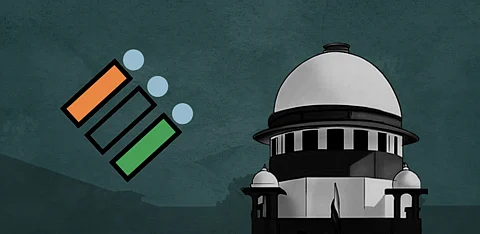

THE SUPREME COURT TODAY directed the Election Commission of India (‘ECI’) to file a comprehensive response to a plea by the NGO, Association for Democratic Reforms (‘ADR’), which has sought constituency-wise and booth-wise disclosure of the names and reasons for deletion of nearly 65 lakh voters from the draft electoral rolls published on August 1, 2025, following the Special Intensive Revision (‘SIR’) exercise in Bihar.
A bench of Justices Surya Kant, Ujjal Bhuyan, and N. Kotiswar Singh directed the ECI to submit its response by Saturday, August 9, and provide a copy to advocate Prashant Bhushan, who appeared on behalf of ADR. The matter will now be heard on August 12.
Besides the list of deleted electors, ADR has also sought the publication of names and booth-level details of voters whose enumeration forms have been marked “recommended” or “not recommended” for inclusion in draft rolls by Booth Level Officers (‘BLOs’).
Bhushan submitted that the ECI’s July 25 press note indicated that approximately 65 lakh voters were dropped due to various reasons — 22 lakh were deceased, 7 lakh were registered in multiple places, and 35 lakh had either migrated or were untraceable. However, he contended that the ECI has neither published the names nor shared complete lists with all political parties, thereby undermining public verification and transparency.
“This information is crucial. The draft roll shows 65 lakh names omitted. But we don't know who they are,” Bhushan argued, “The Commission claims they are dead, migrated, or duplicates, but it hasn’t disclosed any names.”. Further, he argued that out of eight crore electors, those who submitted forms were subject to BLO scrutiny. But there is no data published on how many were marked recommended or not recommended by BLOs.
Bhushan urged the Court to direct the Commission to disclose names with reasons to enable cross-verification on the ground by political parties and people.
Justice Kant observed that every political party must be provided the deletion list at the block level, and asked the Commission to clarify whether it had done so. “Please verify, there’s a specific clause in the SOP stating that every representative of a political party will be conveyed the list at block level,” he said.
As counsel for the ECI responded that the Commission had shared the data with party representatives, the bench noted, “Just say all this in your reply... provide the list of political parties who were supplied with it. We will hear the case on August 12.”
“We will see that every voter likely to be affected gets the required information,” Justice Kant said, asking the ECI to disclose what has been shared and what hasn’t.
Bhushan further pointed out that “as per our information, more than 75 percent of electors did not submit any of the eleven documents prescribed for verification. Among those, BLOs were supposed to mark if the inclusion was recommended or not — but that too has not been made public.”
In its application, ADR has argued that the incomplete and selective sharing of the dropped voters’ list renders it unusable for public scrutiny. “The present list of names dropped from the Draft Electoral Rolls provided to some political parties serves no purpose in the absence of reasons for deletion,” it argued, “ECI’s concealment of such reasons appears to preclude the public and political stakeholders from ascertaining whether deletions are justified.”
Earlier on July 28, during the hearing on challenges to the SIR process, the Supreme Court had cautioned the Commission to ensure a voter verification approach based on “mass inclusion, not mass exclusion.” The Court had also questioned the Commission’s refusal to accept Aadhaar or Electoral Photo Identity Card (‘EPIC’) as valid documents for identity verification.
The SIR process, which began in June 2025, is a critical pre-election electoral revision exercise ahead of the Bihar Assembly elections scheduled for later this year. The controversy around the deletion of 65 lakh voters — nearly 8 percent of the total electorate — has triggered political and civil society concerns over disenfranchisement and due process.
The next hearing is now set for August 12.